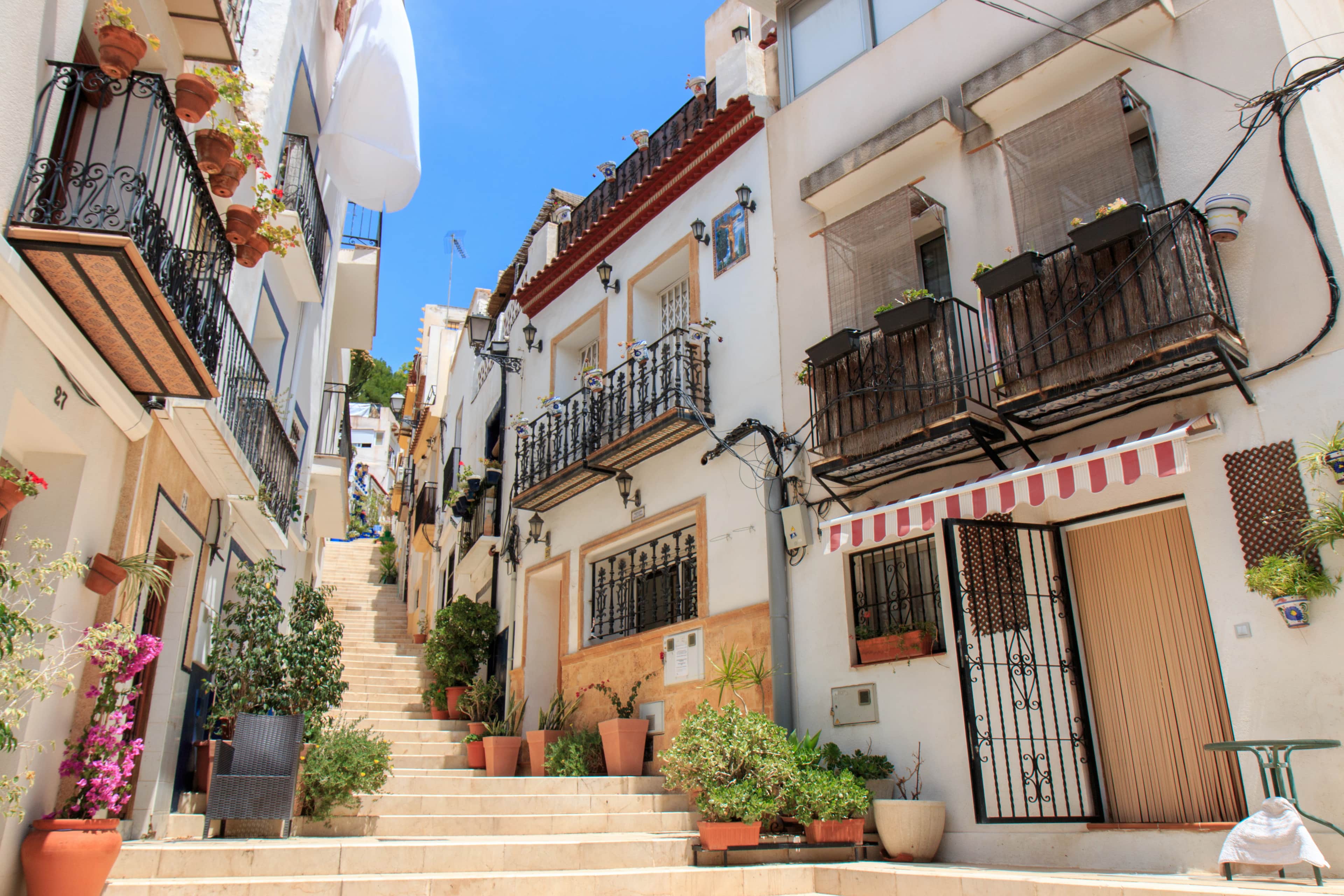Understanding the intricacies of paying taxes with a Spain golden visa is crucial for prospective investors. A Spain Golden Visa holder becomes a tax resident when they spend more than 183 days per year in the country. In this case, the investor’s world assets and personal income will be taxed in Spain.
This article aims to provide an in-depth analysis of the Spanish Golden Visa and its tax implications. It highlights this coveted residence permit’s key features, advantages, and obligations.
We will find out how residency determination affects your tax liability in Spain. We’ll explore income taxes applicable based on residency duration and other forms of taxation like capital gains, wealth taxes, and local property taxes that a golden visa holder might be subject to.

What Taxes to Pay with a Golden Visa in Spain?
Share:
Spain Golden Visa and Its Tax Implications
The Spanish Golden Visa is a special program for non-European Union citizens willing to invest at least €500,000 in Spain. This visa offers tax advantages but also comes with obligations related to taxation.
Key Features of the Spanish Golden Visa:
Invest at least €500,000 in real estate in Spain.
No requirement to spend a minimum of 6 months per year in Spain.
Access to the European Schengen area without additional visas.
This program provides an opportunity for investors looking for potential growth markets while enjoying flexibility regarding their time spent in the country. However, it’s crucial to understand fiscal responsibilities under this scheme.
Transfer Tax and Associated Fees Under Real Estate Option
Advantages and obligations tied to the Spain Golden Visa
Tax advantages. Golden isa holders are not required to pay taxes on worldwide income unless they reside more than 183 days annually in Spain, making it attractive for those living outside high-tax EU jurisdictions;
Obligations. Despite tax benefits, there are still financial commitments such as property taxes or capital gains tax when selling properties purchased under this scheme.
Obtaining a Golden Visa demonstrates a commitment to contributing positively towards overall economic growth and adhering to prevailing laws. It’s important to fully know all implications before deciding if this route suits your circumstances best.

Explore the benefits and drawbacks of the Spain investment program versus other Golden Visas
Residency Determination for Tax Purposes
If you spend more than 183 days annually in Spain, you’ll be considered a resident for tax purposes. It means you’ll have to pay resident income tax obligations.
If you stay less than 183 days annually, you’ll only have to pay non-resident income tax. For those who remain longer than 183 days, taxation rates can differ from 17% to 50%. The rates can vary depending on the region you’re staying in.
Income tax. If you become a fiscal resident by staying more than 183 days in Spain, expect progressive rates between 19%‑47% depending on individual circumstances.
Non-resident income tax. If you don’t qualify as a resident due to shorter stays, you’ll pay NRIT at a flat rate of around 24% of local income.
Tax rates may vary slightly depending on the specific region in Spain where you reside temporarily or permanently with your Golden Visa.
Pay attention to these details from the start to avoid complications later. Adhere to all prevailing laws diligently to make the process seamless and enjoyable. It will benefit everyone involved directly or indirectly.
Additional Taxes Applicable to Golden Visa Holders
As a holder of the golden visa, you must be aware of the various taxes that come with it. Apart from regular income and non-resident taxes, holders of the golden visa must also be mindful of capital gains and wealth tax. Additionally, property owners are subject to local property taxes.
Capital Gains and Wealth Taxes. If you sell a property in Spain for more than what you paid, you must pay capital gains tax. The rate varies between 19% and 26%, depending on the gain amount. In addition, if the value of your assets exceeds €700,000, or €300,000 per person for joint filing, you may be liable to pay wealth tax ranging from 0.2% up to 2.5%.
Local Property Taxation System. As a property owner under the Spanish Golden Visa program, you must also pay local property taxes. This annual levy is based on cadastral value, with rates ranging between 0.4%—1.1%. It’s important to note that adhering to these taxes is crucial for maintaining your golden visa status and contributing positively towards Spain’s overall economic growth.
Dealing with complex financial matters, such as taxation-related issues concerning golden visas, can be challenging. It’s always recommended to seek professional advice from certified public accountants or law firms specialising in immigration and taxation laws. It ensures adherence to prevailing norms governing activities, making the process a seamless, enjoyable, and rewarding experience.
Tax Benefits of the Spanish Golden Visa Holders
Special tax exemptions for foreign workers. As a non-resident worker in Spain with a Golden Visa, you may be eligible for tax exemptions. These tax exemptions are meant to promote investment and foster economic growth in the nation.
One such exemption is for work income earned outside of Spain — it’s not subject to Spanish taxation if certain conditions are met:
you must have been a tax resident in another country before moving to Spain;
your job duties must be performed outside of Spain more than 50% of the time;
the income from these duties cannot come from Spanish sources or entities.
Allowances for families with dependents. If you have children under 25 living with you in Spain, you may be eligible for a deduction of up to €5,565 per dependent from your taxable base annually. You can deduct up to €5,565 per dependent from your taxable base annually. This benefit can help reduce your overall financial liability and make life easier while enjoying all Spain offers.
By understanding the Spain tax system and taking advantage of all possible deductions and allowances, you can maximise your return on investment while minimising risks.

It's important to consult a professional advisor or lawyer specialising in immigration law and taxation issues to avoid any unforeseen complications later on
Balancing Privileges And Responsibilities Under The Golden Visa Scheme
The Spanish Golden Visa program offers a unique balance of privileges and responsibilities. Non-EU citizens granted access to the Spanish Golden Visa program are expected to contribute to Spain’s economic development while being accorded certain rights. Nevertheless, knowing that this advantage comes with specific fiscal requirements is essential.
Rules for staying within tax residency limits. To avoid getting hit with excessive taxes, Golden Visa holders must carefully manage their time in Spain. Temporary stays for cultural or humanitarian collaborations with public administrations don’t count towards the 183-day limit for tax residency purposes. It provides some flexibility and allows you to engage in meaningful activities without worrying about crossing the threshold into full tax residency.
Eligibility criteria are explained in Law No.‑14/2013. The law outlines the specific conditions governing these exemptions. According to this law, any period spent outside Spain due to work commitments or participation in international cooperation programs won’t be considered when determining whether an individual has exceeded their allowed stay under the Golden Visa program.
Suppose you spend more than half the year abroad on business trips or volunteering missions. In that case, those days won’t count towards your total stay for tax purposes as long as they’re duly justified according to official regulations.
Acquiring Citizenship After Golden Visa
An investor with a Spanish Golden Visa can become a Spanish citizen by naturalisation — move to the country, get permanent residence in a few years, and only apply for citizenship. Spain’s Golden Visa program allows individuals outside the European Union to invest in Spain and receive residency status.
To obtain Spanish citizenship, adult applicants must live in the country with residence permits or permanent residence cards for at least 10 years.
As a citizen, you’ll have access to all the rights and privileges of being an EU member state resident. Gaining citizenship grants the right to vote in local and European elections, freedom of movement within the Schengen Area, and access to social services and healthcare systems.
You must renounce your first citizenship because Spain prohibits its citizens from holding dual citizenship simultaneously. The exceptions apply to nationals of many Latin American nations and three European nations — France, Portugal, and Andorra, where Spanish is recognised as the official language.
Conclusion
When obtaining a Spanish Golden Visa, it’s important to understand the tax implications, including residency determination, capital gains and wealth taxes, and local property taxation.
Foreign workers may be eligible for special exemptions, and allowances are available for dependents.
By balancing privileges and responsibilities, you can successfully navigate the process of acquiring citizenship by naturalisation post-holding a Golden Visa without facing unexpected tax burdens.

Download our complete guide to learn everything you need about 9 popular Golden Visa programs.
Benefits
Investment options
Eligibility requirements
Processing times










